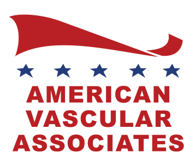The Relationship Between Vascular Disease And Genetics
While attending to your patients, we know you’re thoroughly screening them not only for their current symptoms and medications, but for their overall family medical history. After all, no matter how you guide your patients toward altered lifestyles that accommodate their health goals and challenges, their genetics are beyond anyone’s control.
Thus, so are some of their medical conditions.
And should the question of their overall circulatory functioning come into play, you may find yourself stopping to consider just how much of their condition is genetically-driven.
Here’s what you need to know:
Vascular Diseases and Genetics
The more scientific and medical researchers pursue the underlying causes of certain conditions, the more they are able to isolate and identify how, exactly, the body is genetically predisposed to develop certain conditions.
For example, modern research has identified a genetic variant in some individuals that may be responsible for their increased risk of developing vascular disease. In specific, some people may have a variant of the 6p24 chromosome, the likes of which is a commonly shared trait between individuals with coronary artery disease.
Meanwhile, other studies have focused on how certain genetic products in one’s body may be altered by non-coding RNA. Once altered, these genetic products are capable of disrupting one’s vascular homeostasis, thereby increasing the likelihood that they may develop peripheral arterial disease (PAD). Others, still, focus on the variation in mitochondrial DNA, as well as interactions between one’s genes and their environment.
In short, while the impact of genetics on one’s vascular disease risk is still ongoing, the bottom line is that some people are simply more vulnerable to these diseases by virtue of heredity.
Other Hereditary Risk Factors
Specific genetic and scientific jargon aside, there are other hereditary factors that may increase a patient’s risk of developing vascular disease, especially if the condition(s) run in their family.
For example, according to Stanford Health Care, “modifiable risk factors” that may occur alongside or aid the development of vascular diseases include:
- Obesity
- Diabetes
- High Blood Pressure
- Hyperlipidemia
- And More
Should your patient or their immediate family be diagnosed with/exhibit symptoms of any of the aforementioned conditions, encouraging them to undergo a venous screening would be a wise preventative measure for their vascular health.
Seeking A Certified Specialist
At the end of the day, if your patient requires further attention and treatment for vascular disease, you’ll want to be able to refer them to a locally trusted and certified vascular specialist.
And if you aren’t sure where to begin searching, we recommend you start with American Vascular Associates!
Our network of vascular specialists and labs is the fourth-largest in the nation. Additionally, as our organization provides each of our associate centers with high-quality services and innovative solutions for sustainable growth, you can trust that each of our partnered physicians will be solely focused on patient experience and satisfaction.
If you have further questions, would like to begin browsing our network, or are interested in joining the AVA network, simply contact our corporate office today by calling 727-474-0090!




